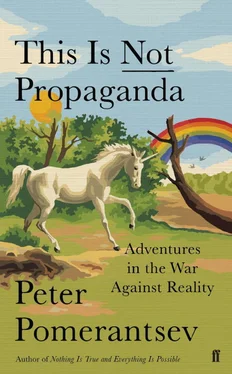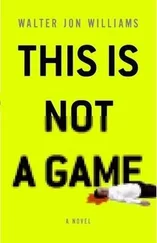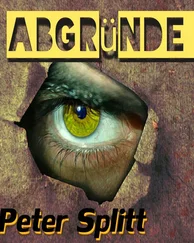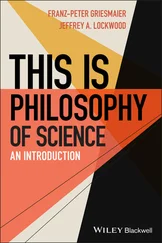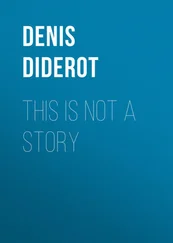Igor now worked for the BBC, one of the foreign ‘voices’ he had listened to in secret in Soviet Ukraine. During school holidays he’d take me with him to that tall island in the middle of the Strand known as Bush House, home of the World Service. In 1929, when it was still only half completed, Bush House was already the most expensive building in the world, the Corinthian columns at its entrance crowned with six-foot statues framing a recessed portico and mighty iron doors worthy of a great cathedral.
It was a wondrous island for a child. As soon as my father was locked in the aquarium-like glass case of the broadcasting studio, I was free to roam every floor. Down the wide stairs I went, around me every colour and ethnicity the world knows, all speaking, shouting English, but with different accents. All typing, smoking, sprinting between slamming doors to break the latest news. Every section of the vast building was another country or even continent. From one floor to the next I travelled from Greece to the Middle East, then up in the lift to Poland. Sometimes I would find myself lost in Latin America, stranded in Africa, with only the gloomy London light in the windows a constant. Every other journalist seemed to be a great exiled poet or minister-in-waiting. When my father was too busy, I would play football in vast, purple-lit marble corridors with Egon from the Czech Service. He would later be a deputy prime minister, but when I was seven I beat him at penalties.
Igor’s favourite shift was nightwatchman. After 9 p.m., with the office empty, he’d make his way down to the BBC members’ bar, one of the few places in London where alcohol was served after eleven at night, acquire a bottle of Black Prince Bordeaux, uncork it, place it in a plastic bag, pick up some roast beef from the canteen, go back up to the office, pour a glass and consider his new place of work.
‘There’s a kind of gas in this building,’ Barry Holland, Igor’s boss when he first arrived in 1980, the editor-in-chief of the Russian Service and a former military translator, liked to say. ‘Invisible, but very much present. It’s an atmosphere, if you like, the ethos of a balanced view.’ It was a ‘gas’ that would drive Igor’s more partisan colleagues up the wall, frustrated at the amount of time the World Service would give to spokespeople of dictatorial regimes. ‘If you had the chance to interview Christ, you would give the Devil equal time as well,’ one of Igor’s colleagues lambasted Holland. ‘Certainly,’ Holland answered, ‘but I would give Christ the chance to say the final word.’
The ‘gas’ was a means of gaining credibility. Trust. To project the image of Britain as the sort of place that you could rely on for the BBC trinity of ‘accuracy, impartiality and fairness’, which in turn was meant to promote what the founder of the BBC, Lord Reith, had called the ‘British values’ of ‘reasonableness, democracy and debate’, which in turn was meant to make Britain more admired globally. Unlike the rest of the BBC, the World Service was funded by a grant from Her Majesty’s Foreign Office. It existed to ‘serve the national interest’ (which was not, every editor would insist, the same as ‘the government’s interest’).
When he arrived, Igor’s first assignments were to translate lectures on classic English writers, on how Christmas is celebrated in England. Maybe this was meant to be in the ‘national interest’, as it built bridges with Russian audiences. But why, thought Igor, when the Soviet Union censored so much, were they broadcasting something every Soviet schoolchild knew? He wasn’t alone in his frustration. In the early 1980s a new generation of editors emerged who launched their own small cultural revolution at the Service.
Igor put on books and plays never broadcast in the Soviet Union: the love letters of James Joyce, full of sexual references unimaginable in late-Soviet-era broadcasting; Samuel Beckett’s Krapp’s Last Tape (about a man who obsessively records himself and then repeatedly listens to and comments on his own recordings); Audience by Václav Havel (about a dissident who is persuaded to spy on himself. Havel listened to Igor’s broadcast of the play on the Russian Service, while serving his prison sentence in Czechoslovakia. In 1978 he had called on people to stop repeating official language and rituals: it was the repetition of things you didn’t believe which broke you. He had been jailed for ‘subversion’ soon after.)
At first Igor had looked down on radio from the heights of literature. Now he was finding himself drawn in by it.
‘Most listeners use radio as a source of information,’ he would write later, ‘but what kind of information? And how does it differ from what you find in newspapers or on television?’
Igor made his programmes on the reel-to-reel machines, on which were magnetic tapes with recordings of voices. Editing tape was the work of an artisan: like a glass-blower blew glass, he was moulding sound.
‘It is my belief that the meaning of radio is in the magic of the voice, the magic of sound. And in this sense poetry and radio share the same element – air. A free element.’
Russia and Ukraine were cut off physically from the rest of the world; books were censored. The rare phone calls he and Lina had with home took hours to arrange through a dispatcher, the secret services eavesdropping on every word. But barriers fell away when Igor entered the BBC radio studio; he felt himself piloting through censorship:
‘The hermetically sealed and soundproofed booths, the control panels, the lack of outside windows make radio studios like spaceships. And your voice alone is capable of unlocking this closed space. I am convinced that, as they sit by the radio, many listeners are on a voyage round the world – no, into outer space, more like. I too am a travel maniac: I jump from wave to wave.’
There was a generation of recent Soviet émigrés who felt they knew what would matter to their audiences. Zinovy Zinik made programmes about punks in east London for Soviet listeners whose idea of the city was stuck in Edwardian literature. Seva Novgorodtsev intermingled satire of official Soviet bulletins with heavy-metal bands banned in the USSR: ‘Our metallurgists produce various metals for the people: from the graceful effervescent bronze to the stunning pig iron…’
Seva’s show became a hit. The World Service received an unheard-of amount of letters from fans inside the USSR, one of the few ways the BBC could gauge its popularity beyond the Iron Curtain: listeners were ready to risk having their correspondence intercepted by the KGB just to express devotion. Soviet newspapers ran attack pieces on how Seva was corrupting Soviet youth. A panel of BBC managers was convened to judge whether he was being properly ‘impartial’. All the playful humour was lost in the translation of his transcripts, and they came out as anti-Soviet diatribes. The World Service’s big bosses were displeased. A new head of the Russian Service, a reformer himself, said he would do something about it – and then quietly let Seva get on with his heavy-metal Soviet satire.
The BBC’s combination of ‘balance’ and absurdist theatre, heavy metal and ‘accuracy’ was competing with Soviet broadcasting, which was about to experience its first tremors.
In the corner of the BBC newsroom was a telefax, which every few hours would chug and squeal with fresh reports from a country house near Reading. This was where BBC Monitoring was based, where eighty monitors, all fluent linguists, would listen to the output of Soviet media in forty-two languages, which it broadcast no less intently than the BBC. Radio Moscow’s usual style was so stiff it made the BBC feel informal. It would reel off statistics from Communist Party plenums about the supposed success of the Soviet Economy, the Onward March of Socialism across the world; state that the Objective, Scientific Progress of History was still inevitable… Even when it peddled what the KGB called ‘active measures’ – disinformation campaigns that claimed, for instance, that the US had invented AIDS as a weapon – it would do so with a Soviet seriousness, including interviews with fake scientists providing fake evidence, but all determined to keep up a facade of factuality.
Читать дальше
